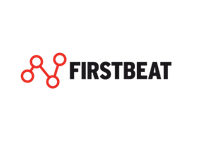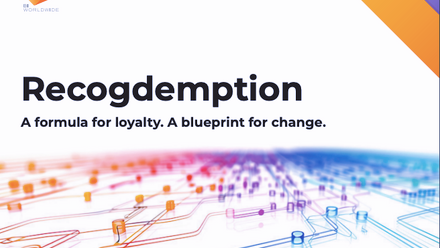Bringing your whole self to work: How to build a more human workplace

What does bringing your whole self to work mean?
By embracing your authentic self and ditching the ‘work persona’ – where you keep tightlipped about life outside of work or hide certain personality traits – you can bring your ‘whole self’ to work. The theory being that, cut free from fears of needing to act in a certain way or not show any ‘weakness’, employees can be at their most engaged, happiest and productive in the workplace.
“When we don’t bring our whole selves to work we suffer – lack of engagement, lack of productivity, and our wellbeing is diminished,” explains author and whole-self proponent, Mike Robbins. “We aren’t able to do our best, most innovative work, and we spend and waste too much time trying to look good, fit in, and do or say the ‘right thing’.”
How does it help employees?
When an employee can be their true self at work it can have a positive correlation with productivity, engagement and work satisfaction, and this is especially true of certain groups. The study Stigma Expression Outcomes and Boundary Conditions: A Meta-Analysis (2019), published in the Journal of Business and Psychology, looked at stigmatised identities such as sexual orientation, pregnancy and mental health. It found that “those who showed up to work with their authentic selves were found to be more efficient in their jobs, and generally more optimistic”.
Employees can feel relief when they no longer have to ‘pretend’ to be someone they’re not and are free to speak openly with colleagues and management. That sense of relief can spur on an increased connection and sense of purpose in the workplace as well as boost wellbeing.
Enjoying this article?
Find out about Yorkshire Building Society’s approach to bringing your ‘whole self’ to work.
Do other employers take a similar approach to social wellbeing? Find out by using rebaLINK, our networking and due diligence platform.
Contact the Associated Supplier to discuss how to develop a healthy workplace.
How does it help employers?
When fostered correctly, employers enjoy the fallout of a more engaged and proactive staff.
Employees who previously spent energy putting on a persona at work can use this same energy to focus on meeting tasks with renewed purpose. And they’re also more likely to stick around at the company, too, if they believe it is somewhere where they can be their true selves.
Companies and decision-makers can also benefit from more honest feedback from employees empowered to offer constructive criticism or viewpoints on the working environment.
“Listen and act by empowering those people who care enough to give you that feedback, and then that becomes a positive cycle,” explained GoDaddy chief product officer Steven Aldrich when discussing the whole-self philosophy. “If you start on this path of listen and invest, you'll get a whole list of ideas that are unique and relevant for your business.”
How to create a workplace that encourages whole self?
Of course, an employee is only likely to bring their whole self to work when they feel comfortable to do so. Creating a supportive environment where employees feel cared for, and safe to be themselves, is crucial.
Creating a ‘human workplace’ is, therefore, an important step towards whole-self employees. A positive first step comes when leaders and management themselves start bringing their authentic selves into the office space. Starting a discussion about life outside of work can show your staff that it is the norm in the workplace, not an exception.
And it goes without saying that reaffirming the company’s commitment to employee wellbeing helps foster a positive relationship between employer and employee. A simple first step here can be harnessing the power of appreciation, by going beyond simply recognising staff achievements relating to work and, instead, focusing on their personal qualities that have helped them reach these goals.
This article is provided by Firstbeat.
Supplied by REBA Associate Member, Firstbeat Technologies
Firstbeat is the leading provider of physiological analytics for well-being and sports.







